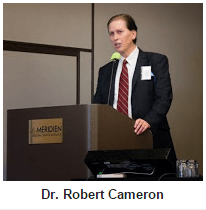 The
Pacific Meso Center, in conjunction with The Office of Continuing Medical Education of the
David Geffen School of Medicine at UCLA, held the 5th International Symposium
on Lung-Sparing Therapies for Malignant Pleural Mesothelioma on May 2nd,
2015 in Santa Monica, California. We were proud to again be the platinum
sponsor of this unique medical seminar focusing on rational
treatment options for patients with pleural mesothelioma.
The
Pacific Meso Center, in conjunction with The Office of Continuing Medical Education of the
David Geffen School of Medicine at UCLA, held the 5th International Symposium
on Lung-Sparing Therapies for Malignant Pleural Mesothelioma on May 2nd,
2015 in Santa Monica, California. We were proud to again be the platinum
sponsor of this unique medical seminar focusing on rational
treatment options for patients with pleural mesothelioma.
As in years past, the course organizer and chair of the symposium was
thoracic surgeon and pleural mesothelioma specialist,
Dr. Robert Cameron. An ardent supporter of rational lung-sparing treatments for pleural mesothelioma,
and innovator of the
pleurectomy/decortication (“PD”) surgical procedure, Dr. Cameron is the founder and
director of the Comprehensive Mesothelioma Program at both the UCLA Medical
Center and the
West Los Angeles Veterans’ Administration Medical Center.
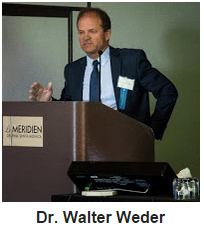 International Panel of Specialists Discuss Latest Treatment Developments
International Panel of Specialists Discuss Latest Treatment Developments
Dr. Cameron started the program with a presentation regarding the pros
and cons of extending lung-sparing
surgery
to include the diaphragm and pericardium. Reviewing relevant study data
along with his experience treating patients at UCLA and the West Los Angeles
VA, Dr. Cameron concluded that it is preferable to limit the procedure
to where the tumor is already present. Resection of the diaphragm and
pericardium poses a risk of spreading tumor cells distantly to the abdomen
and contralateral pleura and is not necessary in most patients.
In a second presentation, Dr. Cameron addressed the potential role of vaccines as an
immunotherapy agent in the treatment of malignant pleural mesothelioma. He explained
how vaccines can be used to overcome the immunosuppressive microenvironment
of tumor cells. He sees a potential for using vaccines before, during
and/or after lung- sparing surgery for pleural mesothelioma.
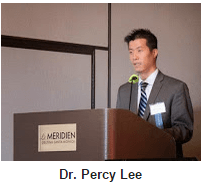 Dr. Walter Weder, Head of the Division of Thoracic Surgery at the University
of Zurich Hospital in Switzerland, gave a presentation on his experience
in transitioning from
Extra-Pleural Pneumonectomy (“EPP”) to lung-sparing PD as the preferred surgical treatment
for pleural mesothelioma. He also addressed a new study at the University
of Zurich exploring the efficacy of a strategy to improve local control
after surgery. The study, which is in its very early stages, involves
spraying a mixture of Cisplatin and fibrin intraoperatively to the tumor site.
Dr. Walter Weder, Head of the Division of Thoracic Surgery at the University
of Zurich Hospital in Switzerland, gave a presentation on his experience
in transitioning from
Extra-Pleural Pneumonectomy (“EPP”) to lung-sparing PD as the preferred surgical treatment
for pleural mesothelioma. He also addressed a new study at the University
of Zurich exploring the efficacy of a strategy to improve local control
after surgery. The study, which is in its very early stages, involves
spraying a mixture of Cisplatin and fibrin intraoperatively to the tumor site.
Dr. Marc de Perrot, Associate Professor of Surgery at the University of
Toronto, addressed the present and future use of IMRT
radiation
therapy before surgery. He addressed a recent study showing encouraging
results for patients with epithelial mesothelioma who received one week
of hemithoracic IMRT before surgery. Dr. Perrot suggested that in future
studies, the protocol should be refined to include an immunotherapy agent.
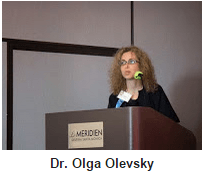 Three separate presentations regarding topics relating to adjuvant radiation
therapies were presented by
Dr. Percy Lee, Chief of Thoracic Radiation Oncology and member of the Comprehensive
Mesothelioma Program at UCLA Medical Center, Dr. Peter Chen, Radiation
Oncologist at Hoag Family Cancer Institute, and Dr. Shilpen Patel, Associate
Professor at the University of Washington Medical Center. The presentations
revealed that recent advancements in technology and treatment methods,
including helical tomotherapy, have decreased toxicity and increased the
effectiveness of adjuvant radiation therapy.
Three separate presentations regarding topics relating to adjuvant radiation
therapies were presented by
Dr. Percy Lee, Chief of Thoracic Radiation Oncology and member of the Comprehensive
Mesothelioma Program at UCLA Medical Center, Dr. Peter Chen, Radiation
Oncologist at Hoag Family Cancer Institute, and Dr. Shilpen Patel, Associate
Professor at the University of Washington Medical Center. The presentations
revealed that recent advancements in technology and treatment methods,
including helical tomotherapy, have decreased toxicity and increased the
effectiveness of adjuvant radiation therapy.
Dr. Olga Olevsky
, Oncologist and member of the Comprehensive Mesothelioma Program at UCLA,
addressed recent developments in systemic therapies for pleural mesothelioma,
including numerous immunotherapy treatments and treatments involving cancer
stem cells. Dr. Olevsky indicated that as more systemic therapies become
available, developments in identifying and correlating biomarkers may
allow doctors to identify which therapy will be most effective for a given patient.
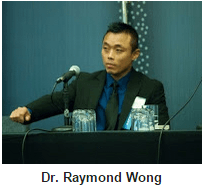 Dr. J. Andrea McCart, Associate Professor at the University of Toronto
Department of Surgery, presented the results of a recent study regarding
the use of virotherapy as adjuvant to debulking surgery for peritoneal
mesothelioma. She also presented the results of animal studies involving
the use of virotherapy in the treatment of pleural mesothelioma, concluding
that the favorable results suggest that it should be developed for use
in humans.
Dr. J. Andrea McCart, Associate Professor at the University of Toronto
Department of Surgery, presented the results of a recent study regarding
the use of virotherapy as adjuvant to debulking surgery for peritoneal
mesothelioma. She also presented the results of animal studies involving
the use of virotherapy in the treatment of pleural mesothelioma, concluding
that the favorable results suggest that it should be developed for use
in humans.
Pacific Meso Center Research Scientist
Raymond Wong, PhD gave a presentation regarding the results of his study at the Pacific
Meso Center Lab in Los Angeles using mesenchymal stem cells to deliver
drugs to tumor cells to increase the effectiveness of immunotherapy agents.
He noted the opportunity to incorporate delivery via mesenchymal stem
cells with the many studies that are currently being conducted for the
new PD-1 immune checkpoint blocking drugs.
Patient Resources and Advocacy
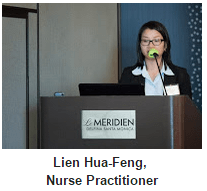 Lien Hua-Feng, Nurse Practitioner
at the Pacific Meso Center, gave an eye-opening presentation regarding
deceitful tactics employed by disreputable lawyers seizing on the vulnerability
of patients diagnosed with mesothelioma. She provided examples of websites
appearing to be maintained by medical professionals offering free assistance
with medical treatment and contacting mesothelioma specialists. But the
“disclaimer page” on the sites reveals that they are really
maintained by a law firm and should not be relied upon for making medical
decisions. She explained that, instead of getting reliable medical information,
patients who contact the sites are besieged with calls from so-called
“patient advocates” or attorneys seeking to sign them as clients.
Nurse Hua-Feng warned patients of the importance of turning to “real”
medical professionals for reliable medical information and experienced
attorneys for reliable legal information.
Lien Hua-Feng, Nurse Practitioner
at the Pacific Meso Center, gave an eye-opening presentation regarding
deceitful tactics employed by disreputable lawyers seizing on the vulnerability
of patients diagnosed with mesothelioma. She provided examples of websites
appearing to be maintained by medical professionals offering free assistance
with medical treatment and contacting mesothelioma specialists. But the
“disclaimer page” on the sites reveals that they are really
maintained by a law firm and should not be relied upon for making medical
decisions. She explained that, instead of getting reliable medical information,
patients who contact the sites are besieged with calls from so-called
“patient advocates” or attorneys seeking to sign them as clients.
Nurse Hua-Feng warned patients of the importance of turning to “real”
medical professionals for reliable medical information and experienced
attorneys for reliable legal information.
Linda Reinstein, President and CEO of the Asbestos Disease Awareness Organization, gave
a presentation on recent legislation regarding asbestos and the status
of her ongoing efforts to get congress to enact a meaningful ban of asbestos
in the United States.
“Hollywood Ending”
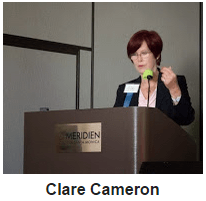
Pacific Meso Center Executive Director
Clare Cameron gave an enlightening presentation regarding the long-standing use of asbestos
in the film industry and the number of actors and production workers who
have been stricken with mesothelioma. She provided shocking statistics
about the amount of asbestos used in such classic movies as “Wizard
of Oz,” “White Christmas” and “It’s a Wonderful
Life.”
The symposium concluded with an emotional presentation from Mia Lauter,
wife of actor Ed Lauter, who appeared in over 550 feature productions
and lost his life to mesothelioma in 2013. She explained that when Ed
was diagnosed, the only treatment options his doctor told him about were
chemotherapy and amputation of his lung though EPP. Ed eventually had chemotherapy
and died shortly thereafter.
Mia expressed regret over not knowing about the Pacific Meso Center at
the time, and how, with information about additional treatment options
such as the lung-sparing treatments available through UCLA and Dr. Cameron,
Ed’s situation could have been different.
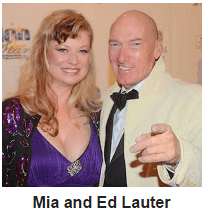
Mia is converting her grief into action to improve the outcomes of others
who contract mesothelioma, both in and out of the entertainment industry.
She is working with PMC to hold a fundraising gala in November at the
SLS Hotel in Hollywood. Ed’s good friend and former co-star Liam
Neeson has committed to participate in the event which will raise much
needed funds for mesothelioma research conducted by PMC.
Mia stated that when Ed was diagnosed, he and others afflicted with mesothelioma
needed a “louder voice.” Now, with her commitment to raising
awareness and the need for research, mesothelioma sufferers will have
a “Lauter voice!”